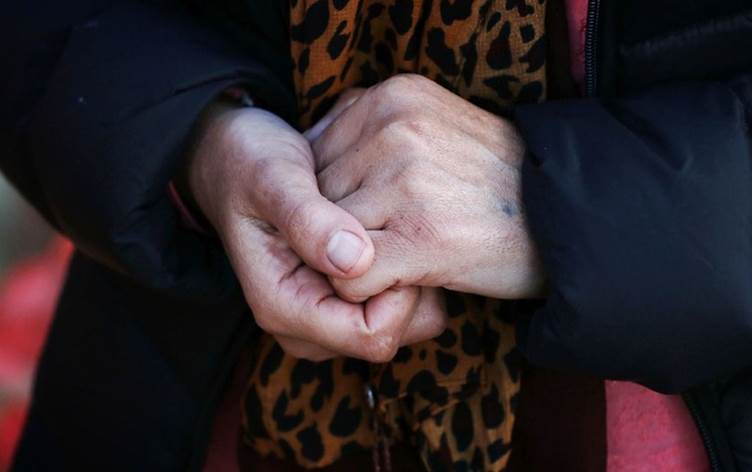
Roughly half of the women and children abducted by ISIS have since been brought to safety by the Yezidi Rescue Office. File photo: Safin Hamed / AFP
ERBIL, Kurdistan Region – Iraqi troops have rescued a 17-year-old Yezidi woman who was being held captive in the Anbar desert near the city of Ramadi, according to a Kurdish official.
Preparations are underway to reunite Zhiyan Shamo Khidhir with her family, Hussein Qaidi, head of the Kurdistan Regional Government (KRG)’s Yezidi Rescue Office, told Rudaw on Tuesday.
Born in 2002 in the village of Kocho, Shingal, Khidhir was among around 7,000 Yezidi women and girls kidnapped by the Islamic State (ISIS) group in the summer of 2014.
No other details about the rescue, Khidhir’s condition, or her current location were provided.
Qaidi said his office is coordinating with the Iraqi Army to help reunite her with her family. He did not say where the family now resides.
Many of those who escaped the ISIS genocide in Shingal fled to displacement camps in the Kurdistan Region province of Duhok. Others emigrated to Europe or further afield – decimating the region’s once vibrant ethnic and religious diversity.
Roughly half of the women and children abducted by ISIS have since been brought to safety by the Yezidi Rescue Office.
What happened in Kocho and other villages like it has been highlighted by Yezidi survivor and human rights activist Nadia Murad, who became a UN Goodwill Ambassador in 2016 and was awarded the Nobel Peace Prize in 2018.
Although Shingal was retaken from ISIS in 2015, the region remains hotly disputed between rival forces. Displaced families are wary of returning amid the insecurity, the lack of infrastructure, and recent Turkish airstrikes targeting the alleged positions of the Kurdistan Workers’ Party (PKK).
Of Iraq’s remaining 550,000 Yezidis, an estimated 360,000 of them live in camps and communities in the Kurdistan Region, according to statistics from the KRG’s Yezidi Rescue Office. Around 40,000 remained or returned to Shingal.









Comments
Rudaw moderates all comments submitted on our website. We welcome comments which are relevant to the article and encourage further discussion about the issues that matter to you. We also welcome constructive criticism about Rudaw.
To be approved for publication, however, your comments must meet our community guidelines.
We will not tolerate the following: profanity, threats, personal attacks, vulgarity, abuse (such as sexism, racism, homophobia or xenophobia), or commercial or personal promotion.
Comments that do not meet our guidelines will be rejected. Comments are not edited – they are either approved or rejected.
Post a comment